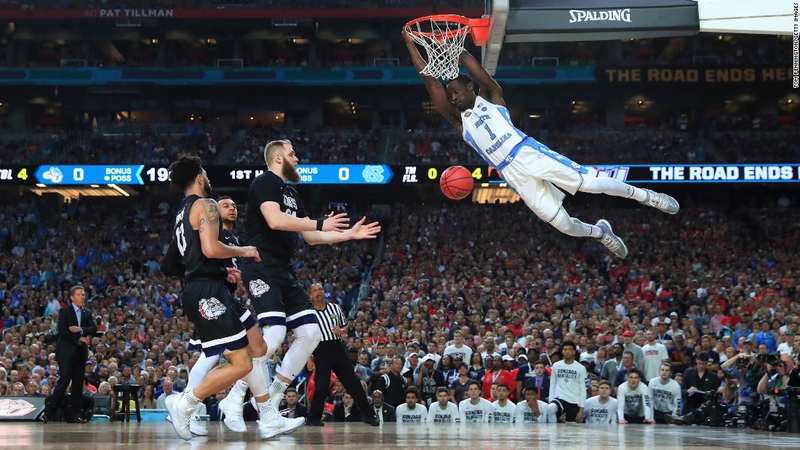The new rules announced this week by the NCAA, put out as a response to the FBI investigation that cropped up this year, were met with a collective shrug by the group those rules were designed to better police: agents seeking to represent top college players before they head to the pro ranks.

"This does nothing," one agent told Sporting News. "This is BS. This is the NCAA trying to take its problems and pass them off to someone else so that they can say they did something. They didn’t do anything, though. This is still something the NBA is going to have to fix itself."
NBA POWER RANKINGS: Warriors still on top; Lakers make big jump
For NBA types, two of the rules are especially pertinent. One will allow players who are invited to the NBA Combine in May but who go undrafted to return to school. That is a worthwhile change, though it would affect only a small handful of players each year.
The other allows players classified as "elite" to have relationships with agents. The NCAA decided that it would have USA Basketball define which players are elite. The problem with that is that USA Basketball does not necessarily want the job. Moreover, agents typically already have relationships with players, or at least with the family members or prep coaches who help them make decisions.
This change won’t even go into place until the NBA gets rid of the one-and-done rule, which makes it all the more irrelevant.
As another agent told SN, "Some of the steps can be good, they can be steps in the right direction, at least. But nothing is really going to change until the NBA overhauls its own system. So the NCAA is kind of painting around the edges. The NBA and the players union, they are going to have to do the heavy lifting.
"It’s all heading toward a system where you have the G-League more involved."
MORE: Coaches weigh in on how NCAA should handle summer recruiting
Under that plan, which has been under discussion for more than five years, players who don’t want to go to college can enter the draft out of high school, with the G-League providing paid spots for players before they go to the NBA. Players who go to school will be eligible to join the NBA after a set number of NCAA seasons, likely two.
This plan can only be put in place, though, when all 30 teams have a G-League affiliate. At this point, three teams — the Trail Blazers, Nuggets and Pelicans — don’t have G-League teams, though the Blazers and Pelicans have been making moves to change that. Further, any changes to the NBA’s player entry system would have to be collectively bargained with the union.
That means the NCAA’s changes are essentially useless. The NBA is not going to unilaterally change the one-and-done rule until it has an alternative in place that both owners and players agree upon. The change to allow elite players to interact with agents will never be relevant, because once the NBA changes the rules, the whole system will have been overhauled.
League sources insist that the NBA wants ample input from the NCAA when it does make changes to the eligibility rules. But the league was not happy with the way the NCAA rolled out this week’s changes, or the way the NCAA seemed to address its issues only by deflecting blame.
"The NCAA is like herding cats," one agent said. "They’re not strong enough as an organization to make real changes. The NBA would like them to be. But they’re not.
"Whatever happens, it is going to have to come from the NBA, and we’re still a few years away from the NBA being able to sit down and make the changes it needs to make, and we don’t even know how much the union is going to want to give in on any of this stuff. So these changes, they’re not going to do much."
Comments